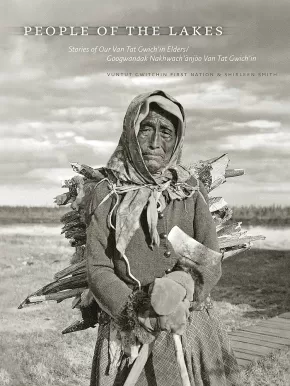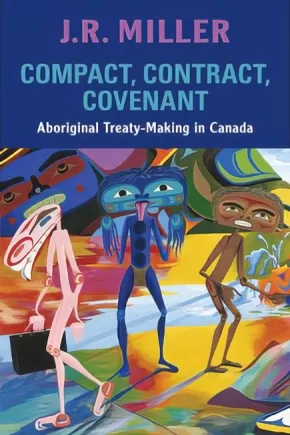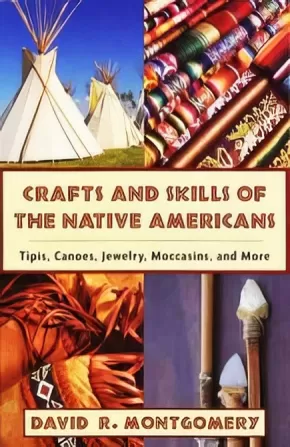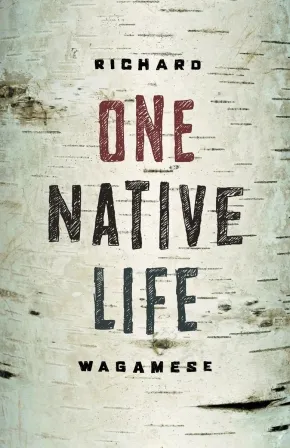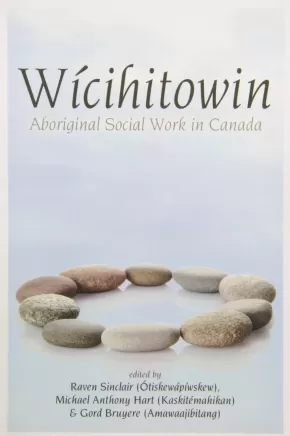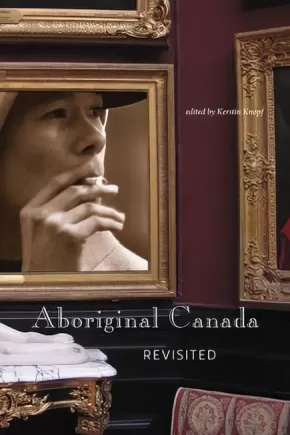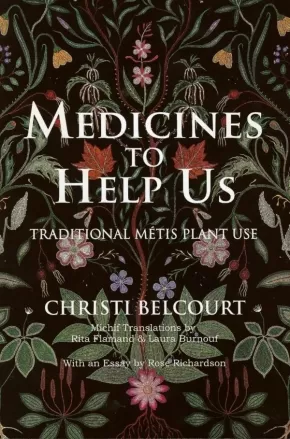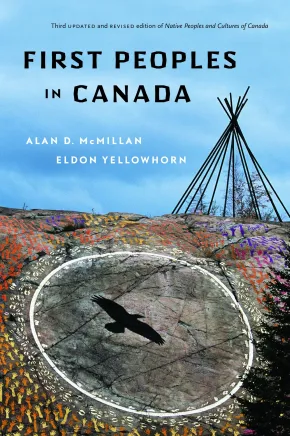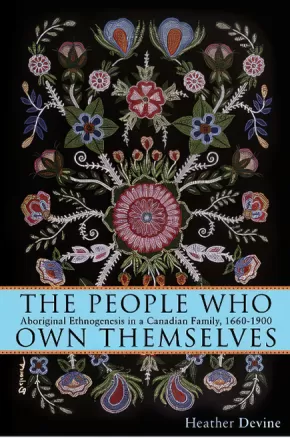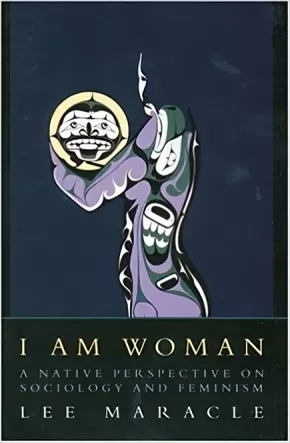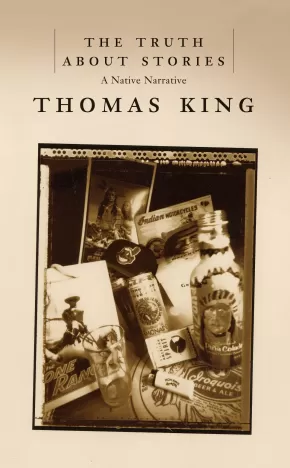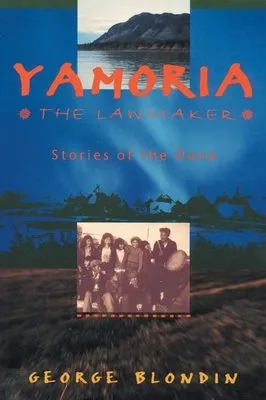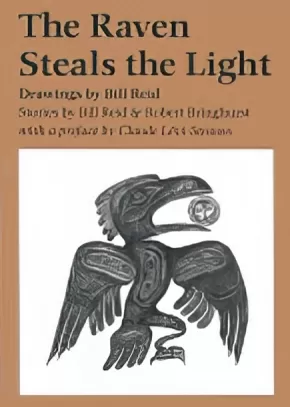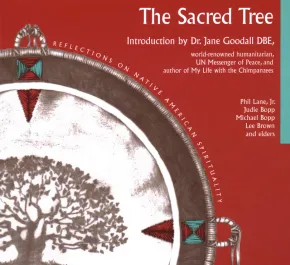
Social and Cultural Studies
541
-
555
of
556 Results;
Sort By
Go To
of 38
People of the Lakes: Stories of Our Van Tat Gwich'in Elders / Googwandak Nakhwach'anjoo Van Tat Gwich'in
$44.99
Format:
Paperback
Text Content Territories:
Indigenous Canadian; First Nations; Dene; Dinjii Zhuh (Gwich'in);
ISBN / Barcode: 9780888645050
Synopsis:
Synopsis:
Many people have a mental picture of the Canadian north that juxtaposes beauty with harshness. For the Van Tat Gwich'in, the northern Yukon is home, with a living history passed on from elders to youth. This book consists of oral accounts that the Elders have been recording for 50 years, representing more than 150 years of their history, all meticulously translated from Gwich'in. Yet this is more than a gathering of history; collaborator Shirleen Smith provides context for the stories, whether they are focused on an individual or international politics. Anthropologists, folklorists, ethnohistorians, political scientists, economists, members of First Nations, and readers interested in Canada's northernmost regions will find much to fascinate them.
Additional Information
|
Compact, Contract, Covenant: Aboriginal Treaty-Making in Canada
$52.00
Format:
Paperback
Text Content Territories:
Indigenous Canadian;
ISBN / Barcode: 9780802095152
Synopsis:
Synopsis:
One of Canada's longest unresolved issues is the historical and present-day failure of the country's governments to recognize treaties made between Aboriginal peoples and the Crown. Compact, Contract, Covenant is renowned historian of Native-newcomer relations J.R. Miller's exploration and explanation of more than four centuries of treaty-making. The first historical account of treaty-making in Canada, Miller untangles the complicated threads of treaties, pacts, and arrangements with the Hudson's Bay Company and the Crown, as well as modern treaties to provide a remarkably clear and comprehensive overview of this little-understood and vitally important relationship.
Covering everything from pre-contact Aboriginal treaties to contemporary agreements in Nunavut and recent treaties negotiated under the British Columbia Treaty Process, Miller emphasizes both Native and non-Native motivations in negotiating, the impact of treaties on the peoples involved, and the lessons that are relevant to Native-newcomer relations today. Accessible and informative, Compact, Contract, Covenant is a much-needed history of the evolution of treaty-making and will be required reading for decades to come.
Additional Information
448 pages | 5.80" x 9.00"
Crafts and Skills of the Native Americans: Tipis, Canoes, Jewelry, Moccasins, and More (3 in Stock) - ON SALE!
$16.00 $19.95
Format:
Paperback
Text Content Territories:
Indigenous American; Native American;
Reading Level: N/A
ISBN / Barcode: 9781602396760
Synopsis:
Synopsis:
Crafts and Skills of Native Americans is a fascinating, practical guide to the skills that have made Native Americans famous worldwide as artisans and craftsmen. Readers can replicate traditional Native American living by trying a hand at brain tanning, identifying animal tracks, or constructing a horse saddle. Readers can even make distinctive Native American beaded jewelry, a variety of moccasins, headdresses, and gourd rattles. Native American style is unique and popular, especially among young people, historians, and those with a special interest in the American West.
Additional Information
240 pages | 5.50" x 8.50"
One Native Life
$19.95
Format:
Paperback
Text Content Territories:
Indigenous Canadian; First Nations; Anishinaabeg; Ojibway; Wabaseemoong First Nation;
ISBN / Barcode: 9781553653127
Synopsis:
Synopsis:
In One Native Life, Wagamese looks back down the road he has travelled in reclaiming his identity and talks about the things he has learned as a human being, a man and an Ojibway in his fifty-two years. Whether he's writing about playing baseball, running away with the circus, attending a sacred bundle ceremony or meeting Pierre Trudeau, he tells these stories in a healing spirit. Through them, he celebrates the learning journey his life has been.
Free of rhetoric and anger despite the horrors he has faced, Wagamese’s prose resonates with a peace that has come from acceptance. Acceptance is an Aboriginal principle, and he has come to see that we are all neighbours here. One Native Life is his tribute to the people, the places and the events that have allowed him to stand in the sunshine and celebrate being alive.
Reviews
"One Native Life contains sixty-five stories that are divided into four books: Ahki (Earth), Ishskwaday (Fire),Nibi (Water), andIshpiming (Universe). From this diverse selection emerge accounts not only of disappointment and racial discrimination but also of the transformative power of love and caring." - Sean Carleton, The British Columbia Quarterly
Educator Information
Suggested Grades: 9-12
ABPBC
Grades 10-12 BC English First Peoples Resource for units on First Peoples' Story and Place-Conscious Learning.
Additional Information
272 pages | 5.63" x 8.75"
Wícihitowin: Aboriginal Social Work in Canada
$39.00
Editors:
● Gord Bruyere (Amawaajibitang) (Indigenous Canadian; First Nations; Anishinaabeg; Ojibway; Saulteaux; Couchiching First Nation;)
● Michael Anthony Hart (Kaskitémahikan) (Indigenous Canadian; First Nations; Cree (Nehiyawak); Fisher River Cree;)
● Raven Sinclair (Ótiskewápíwskew) (Indigenous Canadian; First Nations; Anishinaabeg; Ojibway; Saulteaux; Assiniboine (Nakoda Oyadebi); Cree (Nehiyawak);)
● Michael Anthony Hart (Kaskitémahikan) (Indigenous Canadian; First Nations; Cree (Nehiyawak); Fisher River Cree;)
● Raven Sinclair (Ótiskewápíwskew) (Indigenous Canadian; First Nations; Anishinaabeg; Ojibway; Saulteaux; Assiniboine (Nakoda Oyadebi); Cree (Nehiyawak);)
Format:
Paperback
Text Content Territories:
Indigenous Canadian; First Nations; Inuit; Métis;
ISBN / Barcode: 9781552663172
Synopsis:
Synopsis:
Wícihitowin is the first Canadian social work book written by First Nations, Inuit and Métis authors who are educators at schools of social work across Canada. The book begins by presenting foundational theoretical perspectives that develop an understanding of the history of colonization and theories of decolonization and Indigenist social work. It goes on to explore issues and aspects of social work practice with Indigenous people to assist educators, researchers, students and practitioners to create effective and respectful approaches to social work with diverse populations. Traditional Indigenous knowledge that challenges and transforms the basis of social work with Indigenous and other peoples comprises a third section of the book. Wícihitowin concludes with an eye to the future, which the authors hope will continue to promote the innovations and creativity presented in this groundbreaking work.
Educator Information
Table of Contents
Foreword (Richard Vedan)
SECTION 1: History and Theory
Thoughts Make Dreaming: Historical and Theoretical Aspects for Indigenous Social Work by Gord Bruyere (Amawaajibitang)
Bridging the Past and the Future: An Introduction to Indigenous Social Work Issues by Raven Sinclair (Ótiskewápíwskew)
Anti-Colonial Indigenous Social Work: Reflections on an Aboriginal Approach by Michael Anthony Hart (Kaskitémahikan)
Indigenous-Centred Social Work: Theorizing a Social Work Way-of-Being by Gail Baikie
SECTION 2: Practice
Dreaming Makes Action: The Practice of Indigenous Social Work by Gord Bruyere (Amawaajibitang)
A Holistic Approach to Supporting Children with Special Needs by Rona Sterling-Collins (Quistaletko)
Identity or Racism? Aboriginal Transracial Adoption by Raven Sinclair (Ótiskewápíwskew)
Beyond Audacity and Aplomb: Understanding the Métis in Social Work Practice by Cathy Richardson (Kinewesquao) and Dana Lynn Seaborn
Evolution and Revolution: Healing Approaches with Aboriginal Adults by Cyndy Baskin (On-koo-khag-kno kwe)
For Indigenous People, by Indigenous People, with Indigenous People: Towards an Indigenous Research Paradigm by Michael Anthony Hart (Kaskitémahikan)
SECTION 3: Traditional Knowledge
The Spirit of Dreaming: Traditional Knowledge for Indigenous Social Work by Gord Bruyere (Amawaajibitang)
Navigating the Landscape of Practice: Dbaagmowin of a Helper by Kathy Absolon (Minogiizhigokwe)
Kaxlaya Gvila: Upholding Traditional Heiltsuk Laws, Values and Practices as Aboriginal People and Allies. by Michelle Reid (Juba)
Gyawaglaab (Helping one Another): Approaches to Best Practices through Teachings of Oolichan Fishing by Jacquie Green (Hemaas, Moosmagilth, Ungwa, knewq Kundoque of the Helkinew clan, knewq Haisla, Kemano and Kitselas)
Conclusion by Michael Hart (Kaskitémahikan), with Raven Sinclair (Ótiskewápíwskew)
Closing Words
Notes
References
Additional Information
256 pages | 6.00" x 9.00"
Aboriginal Canada Revisited (1 in Stock) - ON SALE!
$36.00 $45.00
Editors:
Format:
Paperback
Text Content Territories:
Indigenous Canadian;
ISBN / Barcode: 9780776606798
Synopsis:
Synopsis:
Exploring a variety of topics-including health, politics, education, art, literature, media, and film-Aboriginal Canada Revisited draws a portrait of the current political and cultural position of Canada's Aboriginal peoples. While lauding improvements made in the past decades, the contributors draw attention to the systemic problems that continue to marginalize Aboriginal people within Canadian society.
From the Introduction: "[This collection helps to highlight areas where the colonial legacy still takes its toll, to acknowledge the manifold ways of Aboriginal cultural expression, and to demonstrate where Aboriginal and non-Aboriginal people are starting to find common ground."
Contributors include Aboriginal and non-Aboriginal scholars from Europe and Canada, including Marlene Atleo, University of Manitoba; Mansell Griffin, Nisga'a Village of Gitwinksihlkw, British Columbia; Robert Harding, University College of the Fraser Valley; Tricia Logan, University of Manitoba; Steffi Retzlaff, McMaster University; Siobhán Smith, University of British Columbia; Barbara Walberg, Confederation College.
Suggested use: Grade 12 Law
Authenticity Note: Because its contributions from Indigenous scholars, this book is labelled as containing Authentic Indigenous Text.
Additional Information
436 pages | 6.00" x 9.00"
Medicines to Help Us: Traditional Métis Plant Use
$25.00
Artists:
Text Content Territories:
Indigenous Canadian; Métis;
ISBN / Barcode: 9780920915790B
Synopsis:
Synopsis:
Based on Métis artist Christi Belcourt’s painting “Medicines to Help Us,” this innovative and vibrant resource honours the centuries-old healing traditions of Métis women. With contributions from Métis Elders Rose Richardson and Olive Whitford, as well as key Michif phrases and terminology, Medicines to Help Us is the most accessible resource relating to Métis healing traditions produced to date.
Educator Information
This resource guide does not include the study prints referred to on the back cover and within the book.
Michif Translators: Laura Burnoff and Rita Flamand
Elder Validation: Rose Richardson
Format: Book Only - English, with plant names in Michif, Nehiyawewin (Cree), and Anishinaabemowin (Ojibway)
First Peoples in Canada
$29.95
Format:
Paperback
Text Content Territories:
Indigenous Canadian; First Nations; Inuit; Métis;
Grade Levels: 12; University/College;
ISBN / Barcode: 9781553650539
Synopsis:
Synopsis:
Since Native Peoples and Cultures of Canada was first published in 1988, its two editions have sold some 30,000 copies, and it is widely used as the basic text in colleges and universities across the country.
Now retitled, this comprehensive book still provides an overview of all the Aboriginal groups in Canada. Incorporating the latest research in anthropology, archaeology, ethnography and history, this new edition describes traditional ways of life, traces cultural changes that resulted from contacts with the Europeans, and examines the controversial issues of land claims and self-government that now affect Aboriginal societies.
Most importantly, this generously illustrated edition incorporates a Nativist perspective in the analysis of Aboriginal cultures.
Additional Information
400 pages | 6.00" x 9.00" | Paperback
The People Who Own Themselves: Aboriginal Ethnogenesis in a Canadian Family, 1660-1900
$39.95
Format:
Paperback
Text Content Territories:
Indigenous Canadian; Métis;
Grade Levels: University/College;
ISBN / Barcode: 9781552386606
Synopsis:
Synopsis:
The search for a Métis identity and what constitutes that identity is a key issue facing many Aboriginals of mixed ancestry today.
The People Who Own Themselves: Aboriginal Ethnogenesis in a Canadian Family, 1660-1900 reconstructs 250 years of Desjarlais family history across a substantial area of North America, from colonial Louisiana, the St. Louis, Missouri, region, and the American Southwest to Red River and Central Alberta. In the course of tracing the Desjarlais family, social, economic, and political factors influencing the development of various Aboriginal ethnic identities are discussed. With intriguing details about Desjarlais family members, this book offers new, original insights into the 1885 Northwest Rebellion, focusing on kinship as a motivating factor in the outcome of events. With a unique how-to appendix for Métis genealogical reconstruction, this book will be of interest to Métis wanting to research their own genealogy and to scholars engaged in the reconstruction of Métis ethnic identity.
Additional Information
358 pages | 6.00" x 9.00" | Paperback
I Am Woman: A Native Perspective on Sociology and Feminism
$19.95
Format:
Paperback
Text Content Territories:
Indigenous Canadian; First Nations; Cree (Nehiyawak); Salish; Coast Salish; Sto:lo;
Grade Levels: University/College;
ISBN / Barcode: 9780889740594
Synopsis:
Synopsis:
I Am Woman represents my personal struggle with womanhood, culture, traditional spiritual beliefs and political sovereignty, written during a time when that struggle was not over. My original intention was to empower Native women to take to heart their own personal struggle for Native feminist being. It remains my attempt to present a Native woman's sociological perspective on the impacts of colonialism on us, as women, and on my self personally.
Reviews
One of the foremost Native writers in North America, Lee Maracle links her First Nations heritage with feminism in this visionary book. "Maracle has created a book of true wisdom, intense pride, sisterhood and love." -Milestones Review
Additional Information
146 pages | 8.23" x 8.52"
The Truth About Stories: A Native Narrative
$19.99
Format:
Paperback
Text Content Territories:
Indigenous American; Indigenous Canadian;
ISBN / Barcode: 9780887846960
Synopsis:
Synopsis:
"Stories are wondrous things," award-winning author and scholar Thomas King declares in his 2003 CBC Massey Lectures. "And they are dangerous." In his 2003 Massey lectures, award-winning author and scholar Thomas King looks at the breadth and depth of Native experience and imagination.
Beginning with a traditional Native oral story, King weaves his way through literature and history, religion and politics, popular culture and social protest, gracefully elucidating North America's relationship with its Native peoples.
Native culture has deep ties to storytelling, and yet no other North American culture has been the subject of more erroneous stories. The Indian of fact, as King says, bears little resemblance to the literary Indian, the dying Indian, the construct so powerfully and often destructively projected by White North America. With keen perception and wit, King illustrates that stories are the key to, and only hope for, human understanding. He compels us to listen well.
Reviews
"Trust a novelist and English professor to get to the heart of how stories and storytelling shape our perceptions. This is a wonderful study of the power of words." — Booklist
"A collection of thought-provoking essays examining the importance of the oral tradition. Storyteller Thomas King addresses Native cultural concerns and their primal link to storytelling. Intriguing and entertaining. Highly recommended for all tribal college collections and literature classes."— Tribal College Journal
"What is revealed in this graceful, even seductive book of essays about storytelling by the esteemed Cherokee novelist, radio personality, university professor, and Canadian émigré is that what is as important as the stories we tell about the world are the ways in which we interpret those stories." — World Literature in Review
"King’s addresses artfully combine literary and cultural criticism, traditional Native American stories, and personal experience." — The Bloomsbury Review
Educator Information
Essay series that is a study of First Peoples' storytelling in North America.
Grades 10-12 English First Peoples Resource for various units.
Curriculum Connections: English, Indigenous Studies, Civics and Careers, History, Humanities and Social Sciences.
Additional Information
208 pages | 5.08" x 8.00"
Pleasure of the Crown: Anthropology, Law and First Nations
$34.95
Format:
Paperback
Text Content Territories:
Indigenous Canadian; First Nations; Dene; Dakelh (Carrier); Wet’suwet’en; Gitxsan (Gitksan);
ISBN / Barcode: 9780889223158
Synopsis:
Synopsis:
In-depth analysis of the 130-year history of the Aboriginal title issue in British Columbia, including the Gitksan and Wet'suwet'en case.
Anthropologists have traditionally studied Europe’s “others” and the marginalized and excluded within Europe’s and North America’s boundaries. This book turns the anthropologist’s spyglass in the opposite direction: on the law, the institution that quintessentially embodies and reproduces Western power.
The Pleasure of the Crown offers a comprehensive look at how Canadian, particularly British Columbian, society “reveals itself” through its courtroom performances in Aboriginal title litigation. Rather than asking what cultural beliefs and practices First Nations draw on to support their appeals for legal recognition of Aboriginal title, Culhane asks what assumptions, beliefs, and cultural values the Crown relies on to assert and defend their claims to hold legitimate sovereignty and jurisdiction over lands and resources in B.C. What empirical evidence does the Crown present to bolster its arguments? What can thus be learned by anthropologists and the public at large about the historical and contemporary culture of the powerful?
Focusing in particular on the Gitksan and Wet’suwet’en case, the book traces the trial of Delgamuukw. v. Regina from its first hearing during 1987 and 1991 to its successful appeal to the Supreme Court of Canada, which issued a landmark ruling on the case on December 11, 1997.
Additional Information
416 pages | 6.00" x 9.00" | Paperback
Yamoria the Lawmaker: Stories of the Dene
$24.95
Format:
Paperback
Text Content Territories:
Indigenous Canadian; First Nations; Dene;
Reading Level: N/A
ISBN / Barcode: 9781896300207
Synopsis:
Synopsis:
Dene Elder George Blondin creates a spiritual guidebook that weaves together oral stories with the recounting of how the northern Canadian Dene came to depend on the European fur traders. The result is a magical journey for readers of any heritage.
Additional Information
240 pages | 6.00" x 9.00" | Paperback
The Raven Steals the Light
$18.95
Artists:
Format:
Paperback
Text Content Territories:
Indigenous Canadian; First Nations; Haida;
ISBN / Barcode: 9781550544817
Synopsis:
Synopsis:
Ten masterful, complex drawings by Bill Reid are accompanied by ten episodes from Haida mythology told by Bill Reid and Robert Bringhurst. The result brings Haida art and mythology alive as never before in an English-speaking world. The collection includes, says Reid, "a good selection of bestiality, adultery, violence, thievery and assault, for those who like that sort of thing."
Educator Information
This work is available in French: Corbeau vole la lumiere
Additional Information
112 pages | 6.13" x 8.44"
The Sacred Tree
$19.50
Format:
Paperback
Text Content Territories:
Indigenous American; Indigenous Canadian;
ISBN / Barcode: 9780941524582
Synopsis:
Synopsis:
Bestselling Native American title exploring Native North American spiritual teachings.
The Sacred Tree was created by the Four Worlds Development Project, a native American inter-tribal group, as a handbook of Native Spirituality for indigenous peoples all over the Americas and the world. This handbook is being used by the Four Worlds Development Project to eliminate widespread drug and alcohol abuse in tribal communities. It is now being shared for the first time with all members of the human family desiring personal growth.
“For all the people of the earth,” The Sacred Tree begins, “the Creator has planted a Sacred Tree under which they may gather, and there find healing, power, wisdom, and security. The roots of this tree spread deep into the body of Mother Earth. Its branches reach upward like hands praying to Father Sky. The fruits of this tree are the good things the Creator has given to the people: teachings that show the path to love, compassion, generosity, patience, wisdom, justice, courage, respect, humility and many other wonderful gifts.”
Educator Information
This book is available in French: L’arbre sacré
Additional Information
87 pages | 8.69" x 7.87"
Sort By
Go To
of 38

